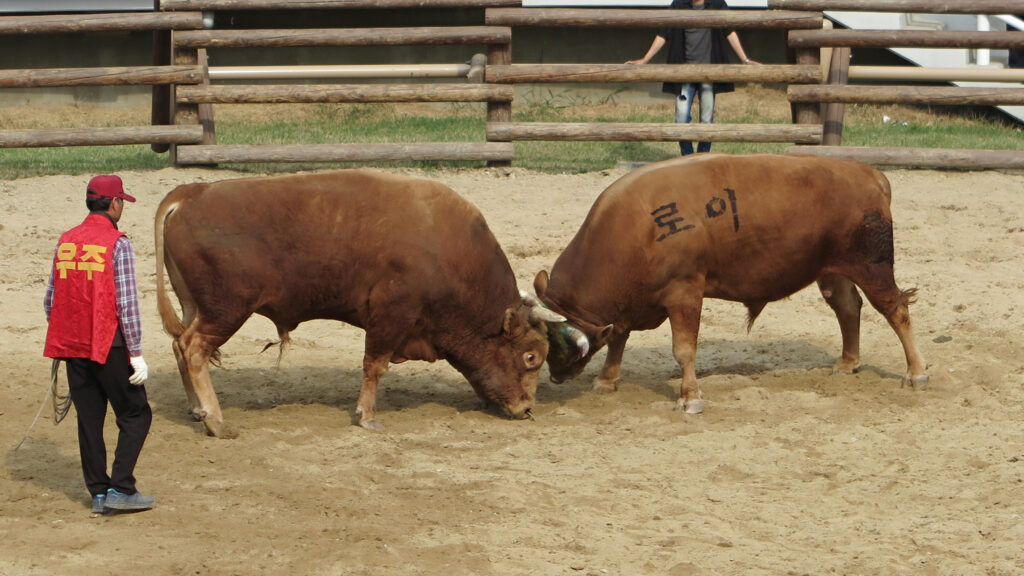
Animal rights activists in South Korea are reportedly calling for an end to a study that investigates the eligibility of bullfighting to be designated as a cultural heritage.
Key points:
- Bullfighting, which has a long history in South Korea, is currently legal due to an exception in the country’s Animal Protection Act that identifies it as a folk game.
- The Cultural Heritage Administration (CHA) selected the practice for the study in January.
- Six groups reportedly held a press conference outside the Government Complex in Seoul on Tuesday, decrying the practice as animal abuse and demanding an end to the study.
The details:
- Korean bullfighting is believed to have started in village festivals during the Three Kingdoms Period from 57 B.C. to A.D. 668 as a way to celebrate the annual end of farming. Unlike Spanish bullfighting, however, it involves two bulls taking on each other and no deaths.
- Modern matches are organized by local governments, drawing tourists and generating revenue through sanctioned gambling. Last year, the village of Cheongdo, known for its bullfighting stadium, offered a prize fund of 130 million won (around $98,000) after a four-year hiatus.
- Tuesday’s activists, which included members from Green Party Korea, highlighted the cruel training methods and injuries that fighting bulls endure. In a statement, they slammed the practice as “nothing but animal abuse and gambling.”
- Yoo Jiu, an activist from Korean Animal Rights Advocates (KARA), told the Korea Times in February 2023 that bulls as young as seven months are forced to improve endurance in terrible ways, such as “drawing tires filled with concrete and running in mountains.”
What’s next:
- The activists are reportedly planning to launch a petition to bar the practice’s designation as a cultural heritage.
Read the full article here





